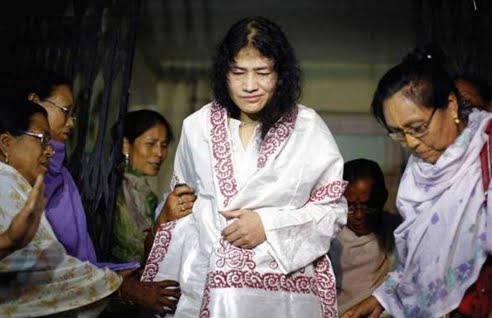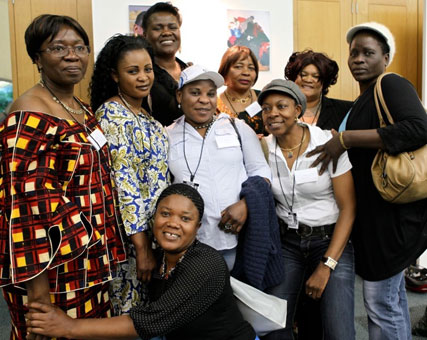
After fourteen years in “protective detention”, fasting, and being force-fed (in the name of protection), Irom Sharmila, anti-militarization and just peace activist walked away from the shackles of State protection yesterday.
On November 1, 2000, in the state of Manipur, in India, insurgents exploded a bomb as a battalion was passing by. No one was hurt, nothing was damaged. Nevertheless, the battalion retaliated, on November 2, by mowing down ten innocents standing at a bus stop in Malom. Included in what has come to be known as the Malom Massacre were “a 62-year old woman, Leisangbam Ibetomi, and 18-year old Sinam Chandramani, a 1988 National Child Bravery Award winner.” A pregnant woman was also reported as being one of the dead.
The army knew it could act with impunity. It was covered by the Armed Forces Special Powers Act, or AFSPA. AFSPA was imposed in Manipur in 1961. Much of the rest of the Northeast has been under its rule since 1972. By the government’s own testimony, tens of thousands of people have been disappeared, tortured, beaten, abused. In Manipur, this began in 1961. By 2000, it had gone for almost four decades.
Irom Sharmila decided then and there that enough was too much. On November 4, 2000, she entered into an indefinite fast, a hunger strike that would continue until the Armed Forces Special Powers Act is rescinded, the soldiers withdrawn, the people restored. She was arrested almost immediately and put into “custody” for attempting to commit suicide.
This week a judge decided that there was no evidence of a suicide attempt, and the State must release Irom Sharmila, and so on Wednesday, she walked out of the hospital, a “free woman.”
Asked about her feelings, Irom Sharmila smiled and described the air outside as “refreshing.” She then got down to business: “I will not touch food or water. I want a mass uprising on the AFSPA issue. I don’t want people to glorify me. I want them to come forward and support my cause, my protest against AFSPA. It’s a draconian law that has widowed many women, robbed women of sons, husbands and fathers. It must be repealed.”
Fourteen years ago, Irom Sharmila began a hunger strike against militarization in one part of India. Today, we see a global network of supposedly democratic, ostensibly protective militarization of everyday life, a “special powers” global factory that produces only corpses and widows and mothers in mourning in the name of security, just war, and, worst of all, peace. When Irom Sharmila left the hospital, where she’d been held for fourteen years, she walked a short distance to a tin shack, where her supporters have been camping. She wanted to spend her first day of independence in the arms of solidarity, surrounded by women. The struggle for peace continues.
(Photo Credit: The IndiAgent)


